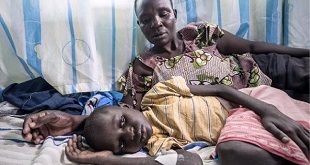
Study points to changing diets and lifestyles
| THE INDEPENDENT | Have you had diarrhea or constipation for some time or have how your stool looks and feels changed for some time? Is their bleeding in your rectal area or blood in your stool? Do you constantly feel abdominal discomfort, such as cramps, gas or pain or feel that your bowel doesn’t empty completely? Do you feel weak or fatigued and have you, for no clear reason, lost weight?
If you answered in the affirmative to any of these questions and decide to visit a health facility, you might be diagnosed with Colon Cancer. It is also sometimes called Colorectal cancer (CRC) because it affects both the colon (large intestines) and the rectum.
According to experts, this cancer is one of the most common malignancies worldwide and the third leading cause of cancer-related deaths.
Unfortunately, in many low income countries, few studies have been conducted to gather information about it, and screening programs are yet to be conceptualised. As a result, patients usually present with advanced disease and unfavourable prognosis.
Fortunately, this could change for Uganda based on a recent study conducted to provide a baseline trend of CRC in the country and shed light on the socio-demographic characteristics of those at risk so that interventions to reduce population risk and individual susceptibility can be formulated.
The study was conducted by researchers from the School of Medicine, College of Health Sciences, Makerere University Kampala, the Department of Medical Microbiology and Immunology, Faculty of Medicine, Gulu University, and Department of Medicine, School of Medicine, College of Health Sciences, Makerere University, Kampala.
The researchers included Godfrey Wekha, Nelson Ssewante, Angelique Iradukunda, Micheal Jurua, Shadia Nalwoga, Sharon Lanyero, Ronald Olum, and Felix Bongomin.
Their research was funded by the Fogarty International Center of the National Institutes of Health, the U.S. Department of State’s Office of the US Global AIDS Coordinator and Health Diplomacy (S/GAC), and President’s Emergency Plan for AIDS Relief (PEPFAR).
Their findings are based a retrospective chart review (RCR) they did on the records of the lower gastrointestinal (GIT) of Mulago National Referral Hospital (MNRH) in Kampala from May to July 2021.
The researchers found a high prevalence of CRC at 9.3% across all age groups among patients admitted to the ward. The period prevalence of CRC was found to be 9.3%. The lowest CRC prevalence in Uganda, 5.5% was recorded in 2015 while the highest, 18.8% was recorded in 2019.
“This is rather a higher disease burden compared to that previously reported where the disease incidence was found at 4.1%,” they say in their report.
They speculate that the difference in the statistics could be explained by the lack of nationwide screening programs and diagnostic capacities in regional referral hospitals which is a general problem for all countries where gaps in detection potentials are reflected in low incidences of CRCs and other cancers.
According to them, a recent report from GLOBOCAN; an online database providing global cancer statistics and estimates of incidence and mortality in 185 countries, shows that much as there’s a global increase in CRC cases, Africa still has the lowest prevalence accounting for only 3.4% of the total 1.93 million new cases regardless of it being the second most populated continent.
Undetermined causes
Their study, however, showed that the likelihood of having Colon cancer in Uganda was increasing with advancing age, and people above 50 years were at an increased risk. However, up to 30.4% of CRC cases in this study were diagnosed before 50 years of age.
They said what’s noteworthy is the fact that these patients present with advanced disease and factors that drive this rapid progression are yet to be understood.
They cite other recent reports that have also noted rising cases of Colon Cancer among adolescents and young adults aged between 34–37years, and the most commonly involved sites were the distal colon and rectum.
“Unfortunately, the factors influencing this rise are yet to be determined. Genetic predisposition in the face of increasingly sedentary lifestyles as evidence by a steep rise in other NCDs is a possible explanation,” the researchers said, “Therefore, urgent research is needed to demonstrate the role of screening, illustrate the pathobiology of the disease in these age groups, and explore treatment options for optimal care.”
According to the report, data of 1476 unique patients was analysed. Of these, 979 (66.3%) were male with median age of 38 years. Majority, 1196 (81.6%) were from urban areas mainly from Kampala. Up to 75 (5.1%) participants had risk factors for CRC recorded. This included alcohol consumption, smoking, diet on red meat, HIV, and family history of malignancies.
Recent studies have underpinned a high body mass index (BMI), old age, family history of cancer, smoking, and frequent alcohol intake as risk factors for the development of CRC, as do occupational exposures and physical inactivity.
But patients in the younger age group had no history of alcohol consumption, cigarette smoking, comorbidity, or family history of cancer.
Their study showed, however, that age, sex, marital status, and presence of at least one known risk factor for CRC were strongly associated with Colon cancer.
Major health problem
Colon cancer is a major public health problem whose cause is not well understood. Former presidential candidate Maj Gen Benon Buta Biraaro, 61, died in 2020 of advanced colon cancer. Black Panther actor Chadwick Boseman aka Wakanda Forever died in 2020 at the age of 43 after a four-year-long battle with colon cancer. The 84-year old former Zambian President Rupiah Banda announced last year that he had been diagnosed with colon cancer.
Globally, CRC is reported to be on the rise with new cases occurring in low income countries where infections have traditionally been a major concern. CRC is the third most common cancer in both males and females worldwide with an estimated 1.9 million new cases in 2020 alone. It is also the second most prevalent cancer and the second leading cause of cancer deaths. Recent reports predict that the global cancer burden will reach 28.4 million cases by 2040, with most cases (64–95%) occurring in developing countries.
Risk factors for this disproportionately high burden are partly due to the aging population and partly to the rapid globalisation and the adoption of the associated risk factors within these populations. Because of the lack of priority-setting systems in these countries, an epidemic of communicable and non-communicable diseases is likely to emerge.
Colon cancer is currently considered to be one of the clearest markers of disease and dietary change. The rise in the global burden is not uniform with significant variations influenced by geographic location, socio-economic status, age, and gender. Although high-income countries currently bear the heaviest burden, increasing civilisation and dietary changes in Low income countries, predict a threatening rise in the incidence rate of Colon cancer. Indeed, the mortality rate due to rectum and colon cancers in Low Income countries is projected to rise by up to 60% and 71.5% respectively by 2035.
“There is a substantial burden of CRC among patients with lower GIT complaints in Uganda,” the researchers say, “clinicians should seek to screen patients with identifiable risk factors for CRC so that appropriate interventions are performed timely”.
****
 The Independent Uganda: You get the Truth we Pay the Price
The Independent Uganda: You get the Truth we Pay the Price


